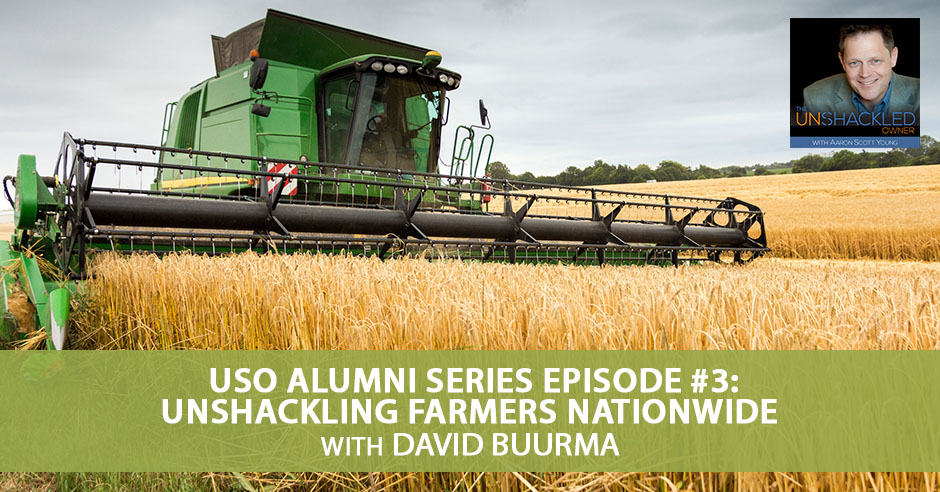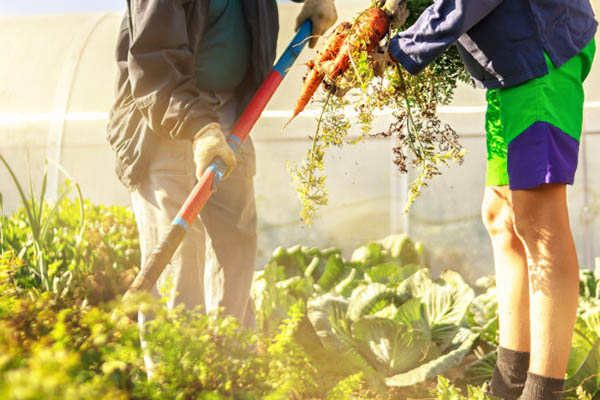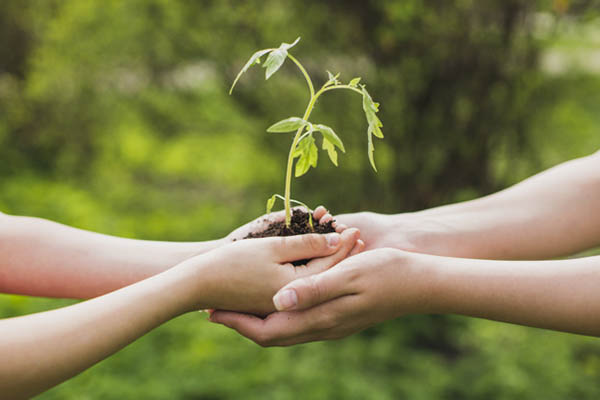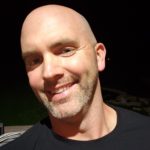
The world is full of so many opportunities. Yet, we constantly let them pass by. A person who knows how to grab opportunities by the reigns is David Buurma of LaSalleAgri Fertilizer. Unshackling farmers nationwide, he has taken an old-fashioned business and diversified it. He shows us how he built up this business, taking byproducts of farming and turning them into productive companies. He talks about the farm and the biofertilizer business that has since made him successful. Throughout his journey and insights, he greatly highlights the importance of seeing opportunities beyond the problem and challenges. Your business does not even have to be a big business to create a difference in yours and others lives. All it needs is to create streams of income that are dependable.
—
Listen To The Episode Here
USO Alumni Series Episode #3: Unshackling Farmers Nationwide with David Buurma
It’s great to be with you. It’s always fun to be with you. My entire reason for doing this is to help other business owners whether you’re aspiring to be a business owner, you’re getting started, you’re trying to get some momentum or you’re already successful. What I’m trying to do with this show is give you the ideas, the tips, the shortcuts and the stories that will help you not feel so alone in your struggle because entrepreneurship can be a lonely business when you’re trying to get something going that nobody else understands. My goal is to help 100,000 business owners to learn the lessons of how to become an unshackled owner.
When you learn these lessons, it will help your business be more successful. It will help you have more time to either develop this company or start new things. It will provide more money not just for you and your family but for you to help the charity or for giving to people who are doing amazing work or to go out and serve a mission trip or whatever it is that floats your boat. When you become unshackled and you own that company instead of it owning you, that’s when the magic starts to happen. We’re going to talk to a guest, a great guy, who’s the epitome of a great entrepreneur who understands how to blow up a business, how to do things well. His name is David Buurma. David is a friend that I met at an event years ago.
I don’t think we met a couple of years ago. It was in the winter time.
We met at a conference down in Florida. David runs a business outside of Toronto, Canada. It’s a little further outside you might think because he’s a farmer, so there’s not a lot of farming downtown Toronto. We met and hit it off and did some work together. He’s an Unshackled Owner client. He went through the class. The reason I wanted to visit with you was that you and your brother, Roger, have taken an old-fashioned business, farming, which is still critically important because we all like to eat. Many farmers are struggling. We hear about the demise of the family farm. We hear about how things are not working. Yet you have diversified, taking all the byproducts of farming and turned them into productive companies to where you’re successful. You’re making money. You’re growing. You’re expanding on your businesses. You’re expanding with your employees. First of all, it’s fascinating to me how you are killing it in a business that we always hear is only corporate now. There are no family farms anymore.
One of the biggest things there on that topic is that when I go to any event like when we’ve met or Tony Robbins’ event, one of the things they’ll ask me, “What do you do?” I go, “Farming.” I think I’m the only one at those events that’s a farmer. It can be 5,000 people, I’m probably the only farmer. That’s part of the struggle of why it’s held behind because the farmers need to get out there and start learning what the rest the world has been learning for the last little while. It’s behind that way.
Ranchers and farmers always described their business, their farming or their ranching, as a lifestyle business. They’ve conceded that they’re not going to make much money. They always say, “You have to do it because you love it and because you want to live this life.” Not because you want a lot of money, which maybe that’s true. We have expanding population, more and more people want to eat.

Farmers Nationwide: You have to have flexibility in businesses like farming because almost everything is not under your control.
Everybody wants to make money. It doesn’t matter if it’s me or my employees. We all want to make money. Some people have some issues with money as far as making that stuff. Personally, I have no issues. The reason why I hire certain people that are less certain to go is that I’m not generating cash for the company. It comes down to those basics for me.
You’ve figured out about how to make a return on your investment. Dave, how did you start? Did you grow up as a farmer? Where did you start?
At fifteen years old, I dropped out of school. I went to work for my brother who was in manufacturing. For a couple of years, I worked for my father. For another couple of years, I got married to a Mexican down in Mexico. I had a little bit of a fire to see what the rest of the world was like. I spent four years in Mexico, tried a few businesses down there, which one was an auto trader type business, tried to start it up, lost my money. I came back to Canada and start all over again. Two years back in the manufacturing, my brother at that point in time wanted me to come work for him. My father back in the farming side of things, we didn’t get along well with my father when it came to the day-to-day activities. We get along great with him at family functions. In business, that didn’t work so well. It was shortly thereafter, my brother and I, we split ways for about a half a year and then my dad decided at that point in time to take over. Eventually, he still owns a lot of lands and we sharecropped that land.
At that time, we were handling some biofertilizer. That’s what I wanted to have was that biofertilizer business when I did meet up with Aaron the first time. We’ve used his program not for that program so much, but more into the farming because farming is a very complicated business. You have weather and bugs. Everything can affect it all day long. That’s not controllable. That’s outside your control. What Aaron’s program offers a program that will create structure and allow flexibility. That’s the biggest thing. That’s why it helped us so much is because you have to have flexibility in businesses like ours but you have to create structure, so you get production. That’s where it helped us so much.
First of all, he said it creates structure and provides flexibility?
Flexibility at same the time. We don’t know how much they know about your program. We do this weekly MIOs, most important objections, you teach about. We go over the priorities of that week, but they may have five or ten priorities and may only hit half of them. Something might come up in that time and that one priority didn’t get done, but you got the other ten to work on. It keeps the flexibility that we don’t have to be micromanaging what the priorities are each day because they already know it at the very beginning of the week.
You’re restating things about my class in a way that I hadn’t thought of. This is how it was interpreted. I want to talk about you. Here you are. Your dad says, “I’m going to let you and your brother, Roger, work together. I’m going to let you guys take over the farm.” He’ll own the land. You will lease from him or sharecrop, or he gets a portion of profits or something. He’s like, “You guys take over.”
My dad gives us a break, but there are no real breaks when you’re working with him. We write an agreement between us and that’s all cool. We start farming his land. At that point in time, we didn’t talk about this much before, but this became the bigger business in a lot of ways. I started handling a product of biofertilizer product that my dad handled for a bit. Biofertilizer is human manure that’s been pelletized. It’s been heat treated so there’s no salmonella and E. coli. It’s been classified as a fertilizer. I’ve taken that product and as they’re getting one load a day from one city, I bought it at that point in time from my brother and my father. Since then, I was at Winzar. We’ve also made a contract to deal with Toronto for about half a year. Detroit built the biggest plant in North America. They’re producing ten loads a day in Detroit. I take all their product also. It became a very large company in a very short period of time. I don’t even run that company day-to-day.
What they’re doing is they’re taking sewer byproduct. It’s going into the waste treatment facility. They’re taking out that sludge that was before maybe going into the ocean or something.
They’d burn it off. They would also put it into the grassland, but it’s very complicated because there were salmonella and E. coli they had to watch. They had a lot of rural setbacks and also transportation could be very expensive because it would be a wet product. Whereas the product that I handle now is a dry product. It’s like 6% moisture. It added value to the product because it’s dry and essentially, as soon as you dry out a product like that, you increase the nutrient values in that product to make it a marketable product.
I’m going to try to make a comparison. We have a little tiny hobby farm, 25 acres. I have no idea how big your place is, but mine is little. We compost everything. We’ve got horse manure. We’ve got rabbit pellets. We have goats. We have llama, all this stuff. We compost it all and it cooks down by putting it together and then mixing it and adding a little water. That compost fertilizer is massively valuable. You put that on your garden or whatever and things explode in growth compared to raw. You’ve taken a problem for these big cities. You’re buying up all the stuff that is that’s bio-friendly and spread it into the farm. That’s interesting because I always assumed that the fertilizer business was a byproduct of your farm rather than a byproduct of these cities. You can use it on your farm but you can also sell it.
We spread on about 40,000 acres of this product. It added nutrients in a product like this versus a commercial fertilizer, a regular manure, there are a lot of micronutrients that they can’t even afford to buy. They don’t also look at the value as far as they’re paying for it, as far as being an economical source of fertilizer. We also see higher results and return as far as yield with that stuff because it’s pretty simple. If you look at the analysis of the organic matter and so forth, just like other manures like the compost you put in the field, it gives them more results. I’m adding a product that’s giving them huge value because not only are they buying it cheaper, but they also are getting a higher return on investment versus commercial fertilizer.

Farmers Nationwide: As you go through life, we realize that through challenges, there are opportunities.
Was your dad buying the material and using it for the farm or was he reselling it?
He was buying it. He’s reselling a little bit, but he couldn’t handle it. He didn’t get into the business because he wanted to. He got the business because he wanted to for his own fields.
You saw that you could expand. You could go ahead become the wholesale provider of this to the farmers.
There are two reasons why I’m in the business. One is because other people do not do a good job working with the Ministry of Environment. They don’t do a good job working with neighbors. The other reason why I’m in the business is that of my experience in Mexico. I worked on a lot of dicey situations with cops and that stuff down there. When I came back here, I didn’t see the PR relationship issues that others would see as scary. My risk tolerance went up way higher.
I’ve dealt with the worst government people than this. You weren’t afraid of them.
I wasn’t afraid. I’m like, “This is easy. I don’t know what you guys are worried about.” This is simple. That’s probably why I got it. I like it so much. I didn’t see the downside. That’s how I see in life a lot of times. As you go through life and we realize that through challenges, there are opportunities. I didn’t see the challenge anymore. I look at the opportunity. Where’s the opportunity? There’s got to be something. That’s pretty much where I find all my opportunities is where everybody else is seeing a problem.
A real entrepreneur, a legit entrepreneur, that doesn’t mean you say yes to everything. You’re looking for problems that other people are having and say, “How can I fix the problem? How can the problem veer off?” If a lot of people have a problem and you have a solution, then you can make money. Here’s the thing about real estate development. I went up and I bought a big mountaintop. It was covered in blackberry brambles and giant stomps and burned piles. You couldn’t even see the land. All you could see was this big thicket that’s spread out over almost 28 acres. I went in there with a machete.
I started cutting through it, getting all the stickers in my skin, cutting my skin, tried to stand up on stumps. I thought this land’s undervalued. I bought the land. We got in there with a heavy machine. For $10,000, we got the whole thing cleared up. You could see it. Everybody then all of a sudden says, “The land is amazing.” They don’t have the imagination to see what’s there. When you can do what you’ve done, David, which is say, “I can see through the thicket to what the opportunity is,” all of a sudden, this piece of crappy land becomes super valuable. This human manure becomes wildly desirable. Nobody knew what to do with it. You figured it out.
It’s the same thing. Talking about one topic, although I work on these things, my brother actually does exactly that. He had bought two properties. You take it around to clean up it and flip it again and make a couple of $100,000 a piece on them. Why didn’t anybody else see it? Because they’re not thinking outside the box. They’re thinking inside the box. That value is not there because it’s a piece of junk land. After my brother touches it up, spends $20,000, $30,000, $40,000, $50,000 maybe sell off the house off it or whatever, the value is there again. The other farmers say, “I could pencil that out.” They’re willing to pay more money for it. It’s totally true.
People don’t understand. I’m going to stick with the farming analogy. I go around. I speak all over the world. I teach these classes. I own these companies. I put on a jacket and get up on stage and speak up. I was off buying pigs. It’s a different thing. We were driving through the country on the way to this hog production facility and there were some sketchy looking properties. The initial reaction was, “What a piece of junk. The house is falling down. It’s covered in weeds.” I look at that and think for a very little investment, you could scrape all that junk off because it’s burn season. Knock it all down and throw it on the burn pile. I’ll have somebody go through and till up that land and replant. For $20,000, $30,000, you’ve got a clean slate. People all of a sudden when they’re not looking at the trash and the crummy property, “I could build that.” The opportunities are around us all the time. I love what you said, David, which is you’ve got to look beyond. Where somebody else sees a problem, you see an opportunity.
I’ll give you one more example. I love these examples because I felt like it came to my brother. Partnerships for me are very important. They’re not exactly how everybody else sees partnerships, but they’re very important. Sometimes I do not invest in partnerships. Sometimes they’re employee partnerships. My brother, he’s retiring a machine shop business and he wants $100,000 for his business. It comes with his contacts, that kind of stuff. He likes my brother so that’s probably why he was the first one to contact. We brought another fellow that was a friend of ours and a relative of our employees. I brought him in. He’s the right dude, the right place, the right time. He understood values is definitely the values there.
We connected with that guy and we said, “We’ve done a deal with this guy. We’re putting our business together through this other opportunity.” I was interested in this opportunity. I told my brother, “I’m not interested in this business.” There’s not enough money, not enough cashflow. It’s too small. I don’t like the machine. I don’t like steel. My brother, he was like, “No.” He comes back to me, “How can I make this work?” I realize at that point in time, my brother does like machines. He loves steel. He loves manufacturing. I said, “We’re going to make it work.” I went from not wanting to do it to want to do it. We’re going to do a deal with the guy because the brother likes it. Everything else starts small in life, so you never know what it’s going to turn into. With the right people, it will turn into something amazing. Partnership for me is very important.

Farmers Nationwide: Every time you give something away, you have to look at the reasoning why you’re doing it.
I was in Indiana speaking and I went and visited the home of one of my very favorite poets, a guy named James Whitcomb Riley. In the kitchen, there was a piece of furniture and it was called a Hoosier cabinet. The Hoosier cabinet was made by a company back in the middle of 1800s that built wagons and other farm-related wooden products furniture or implements made of wood that farmers used on the farm. They thought, “We can do this little side thing for the lady of the house.” They built this interesting cabinet that had a workspace, some drawers, a flower bin that looked like a drawer but tipped out. They explained to me when they were showing me the kitchen of James Whitcomb Riley’s house that in the 1870s, 1880s, 1890s, kitchens didn’t have countertops like we do now. They had a stove. They had maybe a sink, but they didn’t have countertops wrapped around the kitchen. When this Hoosier cabinet came out, there was this little sideline for this company. It was very successful already making outdoor barn-related products. When the Hoosier cabinet came out where the lady of the house could actually sit down and roll out the dough and make the biscuits and make the pancakes or the bread and had all of her stuff right there, now she had a workspace. It became the thing. Everybody had to have one. They stopped making the farm equipment and made these things for all the kitchens because every kitchen needed one.
You don’t know the opportunity comes up.
Somebody needs something made and you figure it out. All of a sudden, it’s not about the commonplace stuff. It’s all about solving that problem. It doesn’t always have to be a big business. If we can create streams of income that are dependable and you can say, “I know that bigger company or whatever is going to take into our households. We’re going to take in $3,000, $5,000, $10,000 a month. It’s not huge. We’re not going to get rich on that but it’s consistent.”
Margins are important. All I care about is the margin. I get a 50% margin on this thing. If it’s $50,000 a year, it still doesn’t matter. When we can ramp it up, that’s great. I still want my margin.
I’m going to throw one more personal thing. You talked about doing things. You didn’t like steel. You didn’t like that. When you said it, I thought so many people have said, “Aaron, why do you do the real estate investment that you do? You could be way more productive doing storage units or multi-family or townhouses.” I intend to buy property and develop the acreage. I do it because I don’t have to do it. I don’t have the money from real estate investment. I enjoy it. I like doing it. I always make money. I’m a believer in investing in things. If your brother or somebody else will take over the work, good. You can invest money in it. Let them do the work and then take your return on your investment. If it’s something you’re going to specifically to be involved in, I strongly encourage you to do something that you won’t be dreading every day. You’ll enjoy it. It’s why I went to go get the pigs. I don’t love pigs. I don’t want to be a pig farmer. I have a guy that works for me on the property and takes care of the animals.
What I like is that I can make more margin on pigs that I can on goats. There’s more money in the meat. I can make a lot more money with pigs than with goats like I have now. No matter what I like getting in my truck and hooking up a trailer and going and talking to somebody else about livestock. Bringing it back in and putting it to work on my land. I like it. It’s like some people go play golf or something. My wife says, “What’s your high for the day?” I said, “I like getting in the truck instead of getting in my Mercedes and doing something for the farm. It makes me happy.” It doesn’t have to be your passion. Pigs are not my passion, but I love the lifestyle and the money we make on our little family farm.
For this business specifically, I brought an amazingly talented guy. My brother loves the business. I love the books. I like finance. I like that part. I love what I’m going to do with this business. I could care less in what they’re making, to be honest. I love the people. In the end, there are a couple more things but for me, having talented, great people around me is one of my biggest drives each day. One of my biggest drives each day is those people that are around me that are super talented in the field that they’re in, that’s my excitement.
You’re learning from them and you’re watching them. You can be the coach of a team. Let’s say a basketball team. You never played basketball at a high level, but you’re coaching. You know how to put it all together, organize it and then you can stand back and watch these amazing athletes do cool stuff. There’s a lot of joy that comes you’re organizing it, you’re calling the shots. You’re the leader. You stand and watch these super talented people view sports or music or art or farming. It’s a kick to watch somebody who’s good and see them in part of their success.
I won’t even hire anybody that’s not the best. The salesman I hired was I could never think that I would ever be able to afford the wages that I pay him. I would have never guessed it. I paid for his wages in three months. He’s the best. I’ve comfortably gone around telling everybody he’s the best. It’s amazing. It’s unbelievable.
I want to make sure I don’t miss these things. We have the farm. We have the biofertilizer business. Would you comment quickly? I watched a Facebook Live and it was a charity auction. You said something I thought was insightful about why you like giving stuff away.
There are many levels. Every time you give something away, you have to look at the reasoning and why you’re doing it. Sometimes you give something away because your heart was tugged at somebody’s situation that stuff and you give it away. You forget about it because you know that if you’re in that situation, you’d want the same thing done for you That’s one thing. There are other times you give things away where it’s going to benefit everybody. I love marketing. With this situation with the Christian School Charity Auction, it’s a bunch of farmers there. I don’t always give much to farmers. I do it for three different schools.
I’m probably the biggest donator because of the value of the products. It’s about the value of $2,000 to $3,000 for a truckload of the biofertilizer. I donate it to the school and the value is $2,000. They’ve built it up to $3,000 at this last event. I was totally stoked on many levels because people that I’ve donated to, the guy that bought it, he was thanking me profusely for donating to a school. I’m thanking him profusely for backing it. It looks good as far as the branding aspects of giving. There are many levels. Some people think that’s hypocritical. I don’t look at that way. There are different reasons you donate and you give. Sometimes it’s a win-win-win and sometimes it’s just a win. Whatever your reason is, that’s fine. I’m not naïve to think that I’m not going to get something back from that type of a situation.

Farmers Nationwide: You get to a point in life where you realize that you are way more than the things you have around you. The understanding on what you have now is worth way more than the risk you could ever take tomorrow.
Everybody benefits. The school benefits. The farmer got stuff.
Too narrowly in two different areas, somebody would say, “I don’t know how much I could donate.” There are a lot of things you could donate if you’re a little bit creative like. Who would think about giving poop? The guy profusely thanked me. Thinking about it, you would never think that ever happened and it does. That’s one success. Another success is other people say, “You get something back.” I am but don’t be narrow-sighted on either side. Everybody could do something helpful. It’s such a beautiful thing when it can be a win-win. That’s the most beautiful situation.
You can give anonymously if you want to donate money.
We’re in business. We’re doing business here.
There’s a guy in the next building next to me here. He makes this big bronze elk or a bear or a wagon train or a cowboy and a horse, these statues. Some of them can sit on a table and some of them are for outdoors. They’re huge. They’re enormous. He has a program. He’ll go in and say, “We have a reserve price. We can’t let it go for less than this.” They’re pretty low-priced compared to the perceived value. He gives out and he says, “We’ll split whatever it sells for with the auction.” People that leave with a nine-foot-tall bronze statue of an elk or two elk battling with their horns locked and they spent $20,000 on that in an auction or whatever. If the reserve price was $1,500 or whatever it cost them to ship it out there, they make money.
At his place next door to me here in the next building over, they’ve got something like fifteen people in there who are on the phone all day with people that are having auctions. They’re getting called, the auctions are saying, “Can we get a statue?” Are they getting something for it? Sure, they are. They’re selling at a very low reserve. The more successful the auction is the more successful they are. They went public. To say that somebody can’t help charity and helping themselves is freaking out of their mind. You said it and I hadn’t even thought of those guys until now. David, you’re ahead of the curve. Real entrepreneurs see opportunity where nobody else does. You are the epitome of that.
Two more things, we started the biofertilizer business. Once I hired the salesman, top-notch salesman, in no time I think it’s sold out. We go through 100,000 tons of this product a year. We’re good friends. We talk with everything. I said, “How many amazing salesmen are in the agriculture community in Southwestern Ontario? I’m talking the best.” These guys know each other. He was like, “Four or five.” What if we had all four or five of them hired? People have started doing this. This has already started happening. People would not go to somebody else to sell their product. They would come to us because we wrapped up the market because a good salesman will outsell more than five or ten poor salesmen. We wrapped up the market. Now people come to us to sell the products. What I can do is sit down and say, “Let’s do the deal 50/50.” If you like the deal, we’ll do the deal at 50/50. I get 50, the salesman gets 50 and all we do is market the product. You do stuff like that with these guys that people so often want to keep so much back to themselves. They don’t realize they’re living in a world of plenty of these. There’s so much of everything. He’s making me some cocky salesmen and we’re walking around making $250,000 a year. That’s what I envisioned.
They’re making $250,000. You’re making $1,250,000 from four to five great guys.
We’re loving life. There are lots to go around. We don’t care anymore. What is the matter? We do another deal. We have lots enough already. That’s where I’ve spent my time and that’s where I spend my time is in those zones now because it was a long time ago that I had enough. In that aspect now, what I realized through a lot of help, a lot of people including yourself, you get to a point in life where you realize that you are way more than the things you have around you. Taking risks doesn’t seem like risks because you know that even if you were to fail on that, the understanding on what you have now is worth way more than the risk you could ever take tomorrow. I put a post out there saying, “Why am I going to keep on conforming when I have nothing to lose and I have so much to gain?” Other people look at me and say, “What do you mean?” I said, “I’m underachieving because I know enough to be a lot more than I am now.”
That’s that entrepreneurial thing or that’s that drive inside that says, “I know there’s more.” The closer you get to your goal, you’re like, “That’s it? That’s all there is? There’s got to be a higher mountain I can climb somewhere?” You don’t know that at the bottom of the mountain you don’t understand it, but as you start to achieve, then you start looking and going, “That wasn’t that big of a deal. I can do weight on this.”
Our society has worked so much based around fear and there’s a good reason for it. We had 3,000 years earlier than this that people were getting killed and murdered. Fear was very real. We don’t have that anymore. You could take risks. I can lose everything tomorrow and be worth anything I still get fed. It’s unreal. You get that opportunity.
I came out of prison and what does everybody want to pay me $25,000 to speak about? Being in prison. I thought it was going to be the end. I don’t want to encourage you to do it. I’ll carry that one. I’ll be the prison storyteller. I’m going to ask you a self-serving question because I’m impressed with the things you’re saying. Here you are, you’re already a smart guy, a successful guy, traveled around experienced guy. You have assets. You’re already going. You did take the Unshackled Owner class. You’ve come back. You’ve participated in other stuff. What did that either teach you or at least add onto what you already knew that has been useful? A lot of people think that either I’m not successful enough to take the class or I’m too successful to take the class.

Farmers Nationwide: You need to have hunger in your life for something, somewhere.
I have the hard stuff done. We had hunger. We’re great people. It’s the sense of having a lot of the right philosophies in life. Neither my brother and I are very high-structured people. Even if you were high-structured, I think you would get it wrong. Number two, we were missing the structure in our businesses. For those who haven’t taken the course, we are going to go through the course again because we didn’t do it in full detail. We read that it was number six or whatever. We need to finish it up. Hopefully with maybe one of our new hires look over the course one more time and get down to the details. All managers should definitely be taking the course. My brother is a manager. He would go back each week and say, “What did Joe do this week or what did John do this week?” He’d try to figure that out, “What did John do yesterday?” That’s where he’s spending a lot of his time questioning, “Is he putting his all into it? Is he accomplishing things and that stuff?”
With Aaron Young’s program, what happens now is that everybody reports. By 7:00 AM, my brother is essentially done with management because everybody has already reported for the next day of what they’re going to do. With our weekly reporting, we figure out what our important objections are for that week. Those are two small tidbits to the program that has added exponential value. When I get into another business, it is grassroots bang. It’s done. I’m not worried about how he’s going to manage. Is he the right manager? All I can say, “He is the right manager because of his personality and because I know his personality.” That’s irrelevant of him being successful as much as implementing that program into a great person because great people still need something to go off at some structure and procedures and we go on and on, and different things in the program.
People call us up and say, “Why do we do this?” Go back to your book about your employees because of all these things that Aaron’s program implements encourage so that managers, even the managers you do have, have very little work in the daily activities. I go back. I want to manage each division. It’s like McDonald’s. They have 25 managers to get $0.50 raise. That’s not my point. My point is that these guys now they can go back into their same work as the next guys do. If I have a division of four or five guys spreading biofertilizer, when they’re not very busy, my managers buying new stuff, looking for new stuff, organizing things, all that stuff. When they are super busy, my manager is not spending time managing, he’s driving another tractor, another truck. I get full production out of everybody.
Everybody is giving me full production. I said to my crew, my managers, my sales team that I’m taking all. You guys are busted. I put in my Facebook, most people work 40 hours a week. My boys make two days. That’s the truth. You haven’t seen guys working like these guys. I don’t go around and push and push. These guys wake up with fire underneath them. I’m also part of that fire, but I only hire people that have that fire in them. It’s created a structure of flexibility we need in farming. It’s what it’s done is create a flexibility to structure that we need to add and keep on adding. I’m not even nervous now even on that side in buying your businesses. It’s very simple.
One of the things you said that I loved, I’ve seen this happen with other people who’ve gone through the course, who are great entrepreneurs like you. They say, “I originally signed up because I needed help with this business. What I didn’t realize was that once I learned it, I could apply it over and over again.” It’s like they’re not thinking that you’re gaining a new skill set that can be duplicated with lots of other businesses. Everywhere you go, you do it again. It’s a formula. I loved what you said was somebody has a question. I remember you said to me, “I don’t know if I can get truck drivers and tractor drivers and fertilizer guys to go through the process.” A couple of weeks later, I remember you showing me on video this book you and Roger had created for your team. Everybody was happy about it. They liked it because they knew exactly what was expected of them.
This is the biggest struggle. If you’re not an organized type of guy, I am not. I’m far from it. It’s hard to get into the pages and say, “Aaron, I love your program.” No, it will drive you freaking crazy at the beginning. If you work on rewards, you certainly will love it because you’ve realized how much easier it’s made your life. The procedures no longer become difficult because the reward becomes so great. That’s how we work on it. We look at risk and reward and pain and pleasure. We’re all motivated. The reward becomes so great. It’s not even if you enjoy it or not. It’s a necessity. Do it. It’s part of it.
You guys have been such a pleasure to watch. All the people in this series that we’re interviewing have been great. They’re doing all different things. I’m going to interview a guy who went through the class. They’re software developers. They write software for hospitals. How different is that from farming in bio human fertilizer? That’s quite different. The results are there because when you figure out a formula and if you’ve got an entrepreneur’s brain, David, you have it in spades. When you put those two things together, it becomes very powerful. Like you told me before and I said, “How much time do we have, David?” What did you tell me?
I got all day. Whatever you want. It’s there. Everybody else is doing everything. I want to show up today. Could I stay home? It’s fine because I don’t hire people that are better than me. What am I going to show up for?
You could go jump in a tractor. You could go down to the farm. You could make a sales call. You could do it or you could take your family and go to Mexico and stay until January. You could do that.
I’d prefer to drive up in a tractor for a while or do that. The very build is awesome. I say no matter how rich I get or how big I get, I want to go home and drive a tractor. I want to go drive a truck. I want to push that tractor down the road because as farmers, we are allowed to do a lot of the law you are allowed to do. That feels good as a guy.
You did something about driving a tractor. David, it’s been a pleasure to have you on. You’ve dropped so many great value little bombs. There were many gold nuggets along the way. I love talking to you. I love your energy. I appreciate you doing that. Do you have anything, in conclusion, you’d want to pass on to the audience?
I finished up with the last details of what I could offer.
What you said was great. I didn’t know some people liked to have got that one moment. They got, “I need one more thing.”
This is the basic thing is that hunger is so important, number one. You need hunger in your life. You need to have hungry in your life for something, somewhere. I don’t hire people unless they have hunger in life. If they’re getting through life, forget about it. Get food stamps or whatever, it doesn’t matter. You need that hunger for something. The one thing I learned outside your program was that Tony Robbins talks about growth and contribution. When you’ve realized that those fundamentals will make you happy, then you spend more time in that area, it’s growth and contribution. The truth is those are the areas that I live in. Last little detail that I put my vision around is having amazing people around me. I always struggle with Mary that I live in the country is that I have limitations of the amazing people that I can reach out for. They can pull me to the next level, so I’m always pulling the next person. That’s okay.
I love doing this but having those amazing people around you, for me that’s where I want to be. That’s where I want to spend the time. I notice that when I spent any time with negative people, it’s not good for me. I want to draw off them. That’s where I spend my time and energy is around that because life doesn’t matter. That’s why I said to my brother, “Roger, do you remember that difficult experience we had with this one sparer? We call them after problem after problem. We had amazing people the whole time.” We were laughing and joking the whole time because it didn’t matter the circumstances or the situation we were dealing with because of those people who were around us. We’d look back to it and we laughed. We enjoy your time. That’s probably what I’ll leave with you.
We grow through the challenges. David, thank you so much for being here. What a pleasure to have you on. The bottom line here and this has been a little bit of a longer interview, but I didn’t want to stop the value bombs from coming. Learn the lesson. Find the challenge. Find the opportunity. Where somebody else is scared say, “Is there an opportunity here?” The idea of mentorship and finding people that you can learn from. The fact that you’re reading this as we talk about things that are everyday life for us and that can be for you. Find the hunger, find the vision, find the felt need and then use a formula. Following the formula will exponentially grow your business. That’s a great place to leave it. Thanks for being here.
Links Mentioned:
About David Buurma
 We are a brother partnership. We farm and offer products and services to serve the farming community. The program of Unshackled Owner has offered us the opportunity to create a flexible structure that allows everyone to become there own manager. It also has allowed a system that we can put managers in place because we now have a system. Allowing us to create new opportunities. It also allows for quicker growth.
We are a brother partnership. We farm and offer products and services to serve the farming community. The program of Unshackled Owner has offered us the opportunity to create a flexible structure that allows everyone to become there own manager. It also has allowed a system that we can put managers in place because we now have a system. Allowing us to create new opportunities. It also allows for quicker growth.
- AaronScottYoung.com
- The Unshackled Owner Twitter
- The Unshackled Owner Facebook
- Aaron Scott Young LinkedIn


